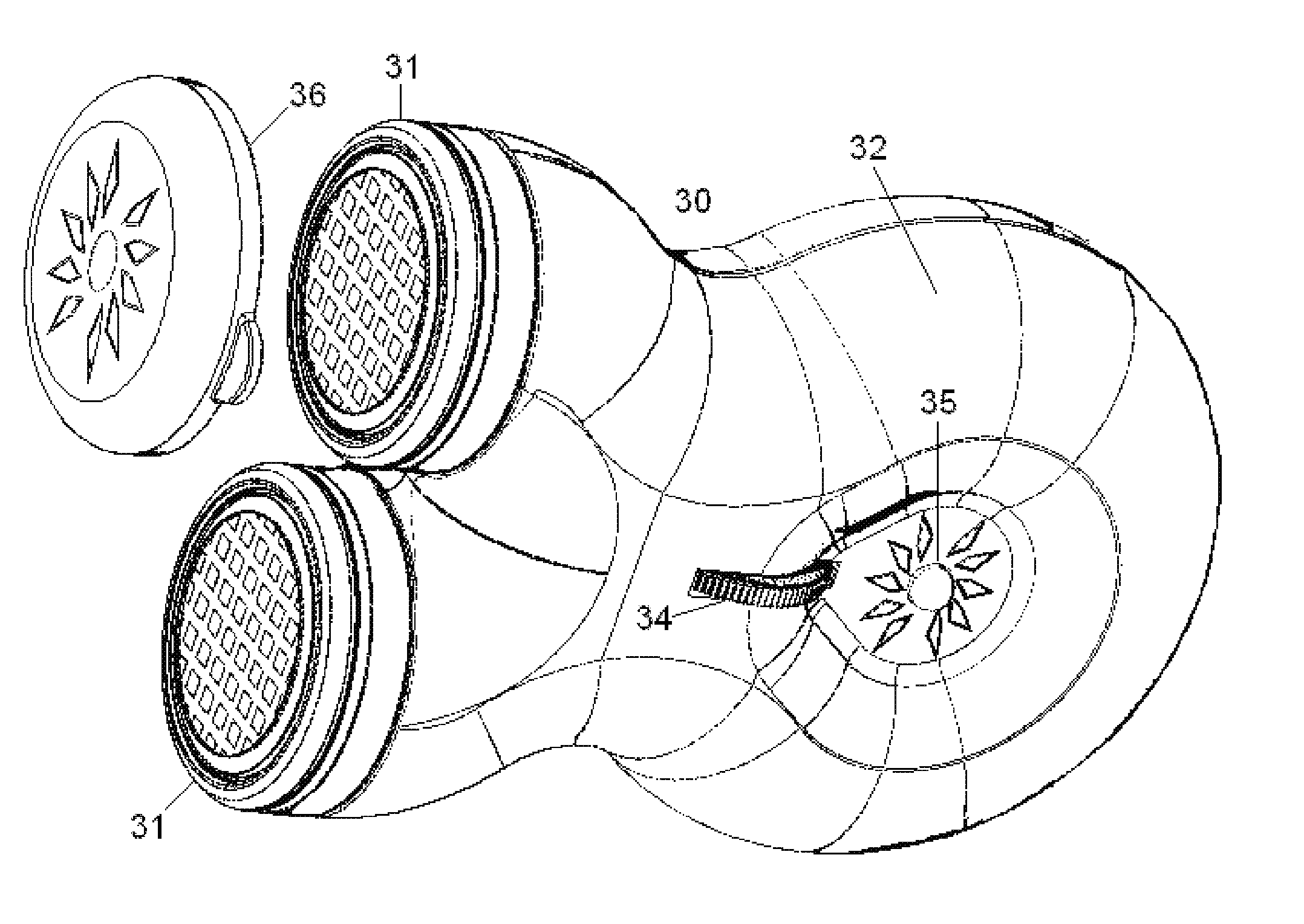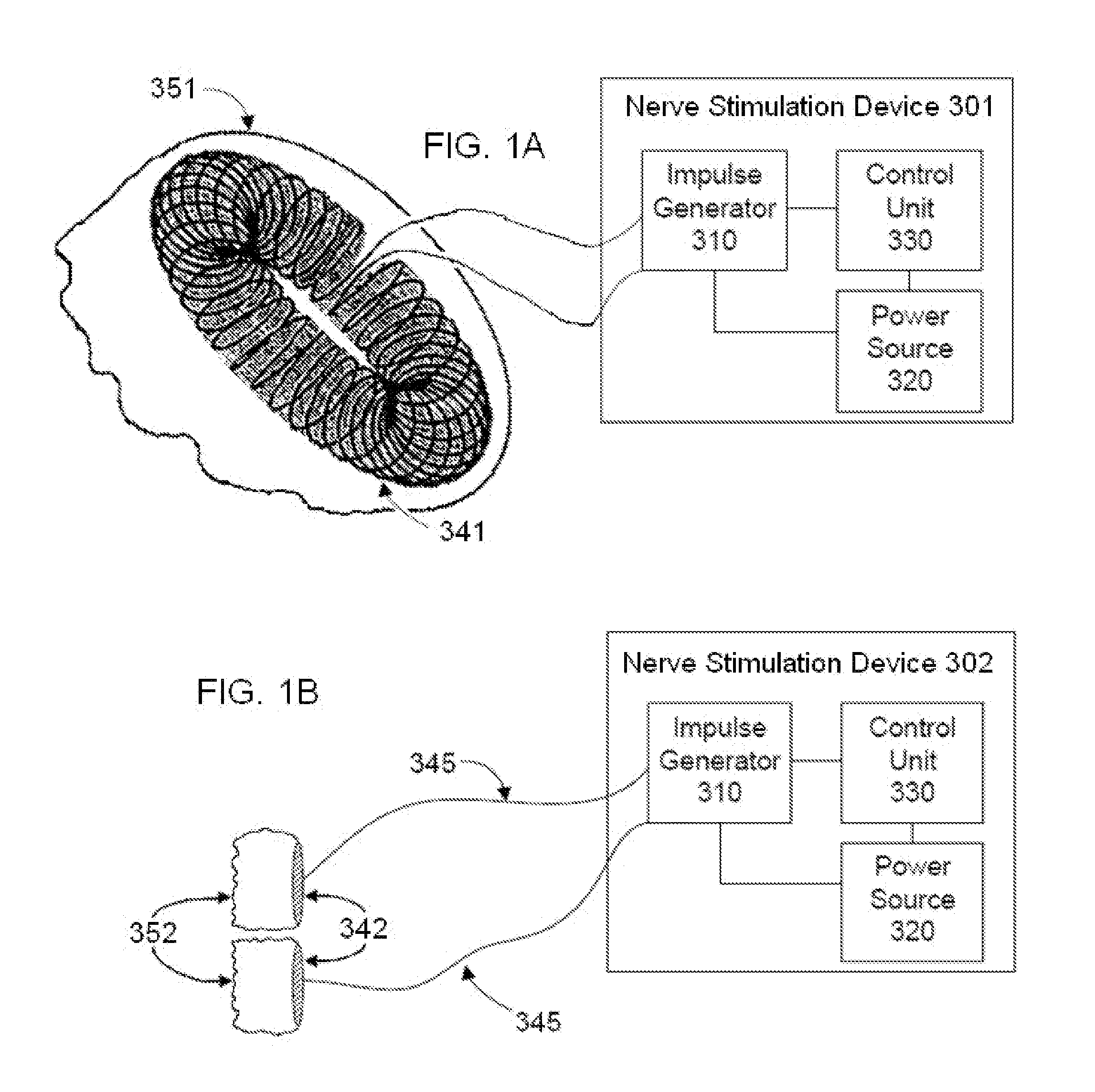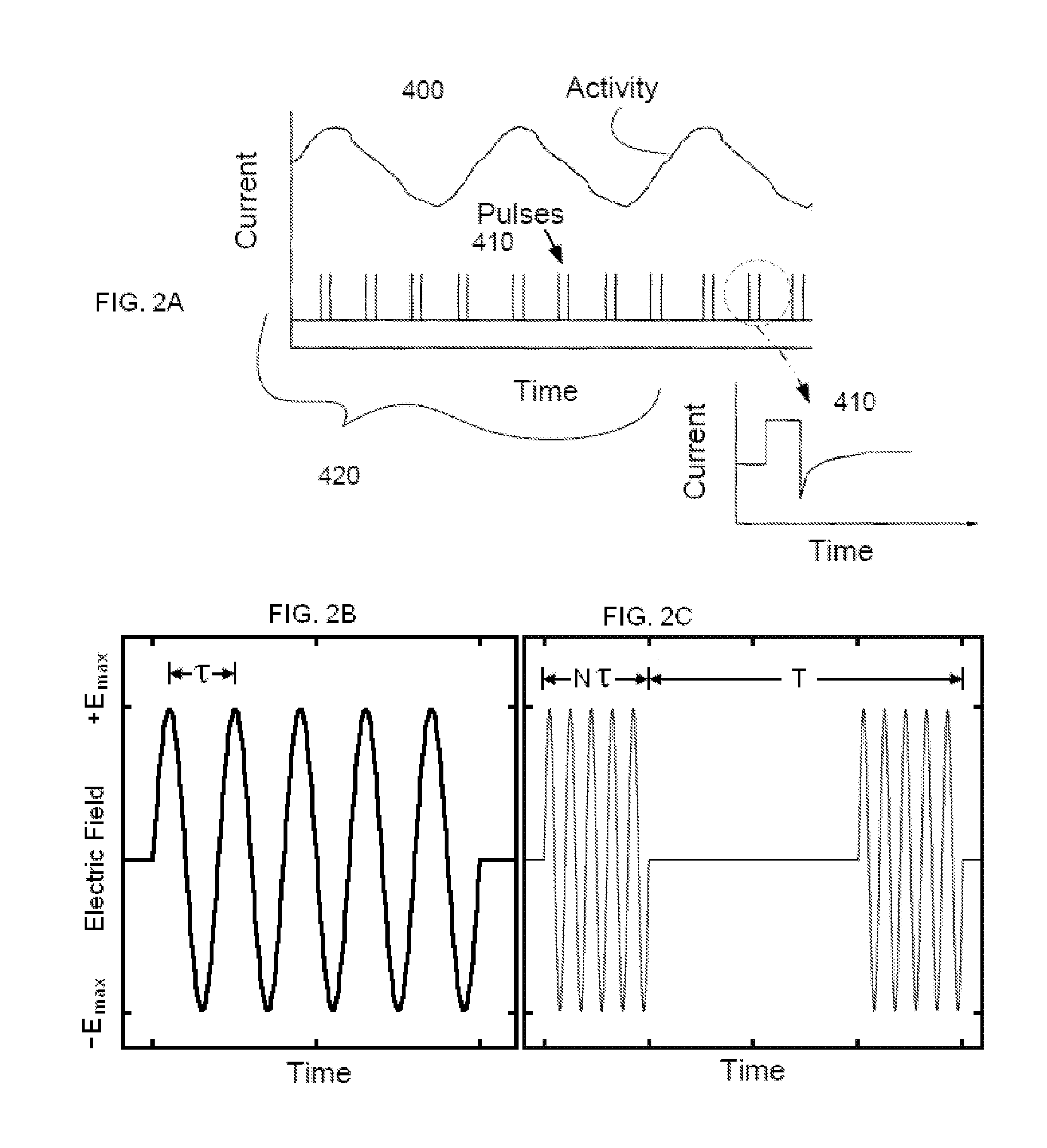Electrical and magnetic stimulators used to treat migraine/sinus headache and comorbid disorders
a technology of magnetic stimulators and migraine/sinus headache, applied in the field of non-invasive devices, can solve the problems of inability to treat migraine/sinus headache, and inability to fully realize the function of other tissues,
- Summary
- Abstract
- Description
- Claims
- Application Information
AI Technical Summary
Benefits of technology
Problems solved by technology
Method used
Image
Examples
Embodiment Construction
[0048]In the present invention, energy is transmitted non-invasively to a patient. The invention is particularly useful for producing applied electrical impulses that interact with the signals of one or more nerves to achieve a therapeutic result. In particular, the present disclosure describes devices and methods to stimulate a vagus nerve non-invasively at a location on the patient's neck.
[0049]There is a long-felt but unsolved need to stimulate the vagus nerve electrically in the neck, totally non-invasively, selectively, and essentially without producing pain. As described below, this is evidenced by the failure of others to solve the problem that is solved by the present invention, such that investigators abandoned the attempt to non-invasively stimulate electrically in the neck, in favor of stimulating the vagus nerve at other anatomical locations, or in favor of stimulating the vagus nerve non-electrically. Japanese patent application JP2009233024A with a filing date of Mar. ...
PUM
 Login to View More
Login to View More Abstract
Description
Claims
Application Information
 Login to View More
Login to View More - R&D
- Intellectual Property
- Life Sciences
- Materials
- Tech Scout
- Unparalleled Data Quality
- Higher Quality Content
- 60% Fewer Hallucinations
Browse by: Latest US Patents, China's latest patents, Technical Efficacy Thesaurus, Application Domain, Technology Topic, Popular Technical Reports.
© 2025 PatSnap. All rights reserved.Legal|Privacy policy|Modern Slavery Act Transparency Statement|Sitemap|About US| Contact US: help@patsnap.com



